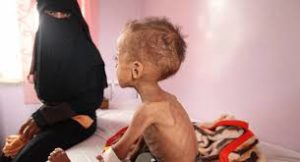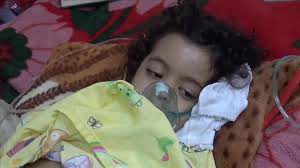Health Crisis Caused by US-Saudi Aggression and Siege on Yemen
Health Crisis Caused by US-Saudi Aggression and Siege on Yemen

Since the US-Saudi Aggression started on 26 March 2015, Yemen’s already fragile health system has come under enormous strain. The emergency health-care needs of the population have now become so great that health workers are struggling to provide essential health care.
“The health system is on the brink of collapse,” said Dr Ahmed Shadoul, the World Health Organization (WHO) Representative for Yemen.
Almost 23% of the health facilities in Yemen are no longer functional for more than one reason. Hospitals and clinics have been bombed and destroyed. Shortages of essential drugs, vaccines and medical equipment are widespread.
In most government health facilities, staff haven’t been paid in 2 years. Doctors Without Borders/Médecins Sans Frontières (MSF) health facilities alone have been hit several times by US-Saudi Aggression strikes.
The UN reported that over 600 health facilities in the country have stopped functioning due to damages or lack of staff/supplies, affecting the access to healthcare of millions of people.
Yemen has already been hit by two major cholera outbreaks in the past two years. The WHO says 2,451 people have died of cholera across Yemen since April 2017, while more than a million suspected cases were reported during the same period.
Dialysis centers have old machines that operate 24 hours a day and 7 days a week due to increasing number of patients across Yemen, the majority of whom have moved to the larger cities where treatment is available.
“One can’t imagine the suffering of renal failure patients having to settle with one or two dialysis sessions per week, when 3 times a week is what is needed for most cases,” said Dr Nevio Zagaria, WHO Representative in Yemen.
Cancer patients, the other victims of US-Saudi Aggression and Siege, the World Health Organization (WHO) said around 35,000 people have cancer in Yemen, with about 11,000 cases diagnosed each year.
“It is very difficult to find medicines, and if you find them in the market, they’re too expensive and citizens cannot afford them,” said cancer patient.
The United Nations announced that it is losing the fight against famine in Yemen, UN Under-Secretary-General for Humanitarian Affairs Mark Lowcock. About 8.4 million of Yemen’s nearly 28 million residents are “severely food insecure and at risk of starvation".
"The number could jump by another 10 million by the end of 2018 “if conditions do not improve,” she added.
Malnourished mothers are unable to breastfeed their equally malnourished babies. Parents have lost their children as entire families are afflicted by cholera and repeatedly infected with other diseases. People thrown into extreme poverty due to the war are unable to buy food for their families, with some families living only on bread for sustenance.

The US-Saudi Aggression deepened a humanitarian crisis that has put more than 22 million people -75 percent of the population- in need of assistance. More than a third of them are at risk of starvation, according to the United Nations.
Thousands have died of treatable diseases such as cholera, meningitis and diphtheria, and more than 3 million have fled their homes. The latest aggression violation is the US-Saudi aggression refusal to allow the flights of the Medical Air Bridge to carry patients, signed by the Ministry of Health with the World Health Organization (WHO) and the United Nations Humanitarian Coordinator.


